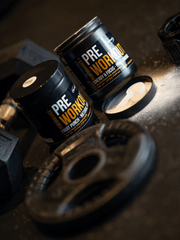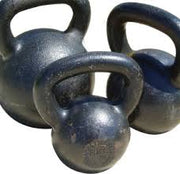Do you constantly feel tension in your shoulders, as if they are always raised?
If so, you're not alone. Many people experience this common issue, which can sometimes be quite uncomfortable and even painful. There are several potential reasons your shoulders may always be raised, such as stress, poor posture, muscle imbalances, or even underlying medical conditions. Understanding the root cause is crucial in finding effective solutions and relieving this persistent discomfort.
In this guide, we will explore the factors contributing to raised shoulders and provide practical tips and exercises to help you relax and correct your posture. So, let's delve into the possible causes and take steps towards achieving a more relaxed and comfortable state for your shoulders.
Briefly describe the issue: Consistently Raised Shoulders.
Consistently raised shoulders refer to a condition in which the muscles surrounding the shoulder joints remain contracted and tense, leading to a constant upward pulling of the shoulders. This can manifest as tightness and discomfort in the neck, upper back, and shoulder areas.
Sometimes, people may not even realize that their shoulders are always elevated until someone points it out, or they start experiencing pain and stiffness in these areas. If you feel like your glenohumeral joint (shoulder joint) is always under tension and your shoulders are almost touching your ears, you may be dealing with consistently raised shoulders.
Shoulder tightness and raised shoulders can result from physical and psychological factors. Often, they are interconnected, with one exacerbating the other. Let's look at some of the most common reasons for this issue.
Why Are My Shoulders Always Raised?
We will explore the potential causes of consistently raised shoulders in more detail.
Causes of Raised Shoulders
Stress and Anxiety:
One of the primary reasons for consistently elevated shoulders is stress and anxiety. When we experience stress, our body's natural response is to tense up, including those in the shoulder muscles area.
This tension may not always be released, leading to a chronic elevation of the shoulders. Additionally, anxiety and worry can cause individuals to hunch their shoulders in a protective posture, which can further contribute to raised shoulders.
Poor Posture:
Another significant factor that can lead to consistently raised shoulders is poor posture. If we spend long hours at a desk or looking down at our phones, our heads tend to lean forward, causing our upper back muscles to overwork and our shoulders to hunch upwards. Shoulder blades also tend to protrude when we slouch, leading to a constant contraction of the muscles surrounding the shoulders.
Over time, this can result in muscle imbalances, leading to persistent shoulder elevation. Long periods of sitting can also weaken the muscles in our back, causing them to become tight and tense. Plus stress hormone: A hormone released by the body in response to stress, known as cortisol, can cause muscle tension and contribute to raised shoulders.
Muscle Imbalances:
Muscle imbalances occur when certain muscle groups are overworked while others remain weak and underused. This can often happen due to poor posture or repetitive movements, such as constantly using one arm more than the other. Trapezius muscle imbalances, in particular, can cause raised shoulders as the upper trapezius muscle becomes overactive and pulls the shoulders upwards while the lower trapezius muscles remain weak.
In the case of raised shoulders, the chest muscles may become tight and pull the shoulders forward and upwards, while the back muscles become weak, allowing this posture to persist.
Underlying Medical Conditions:
In some cases, consistently raised shoulders can be a symptom of underlying medical conditions such as cervical spinal stenosis or thoracic outlet syndrome. These conditions can cause compression on nerves or blood vessels in the neck and shoulder area, leading to muscle tension and elevated shoulders. Another cause of tense shoulders is calcifying, which happens when muscles harden due to excess calcium.
If you suspect that an underlying medical condition may cause your raised shoulders, it is essential to consult a healthcare professional for proper diagnosis and treatment.
Mental Health Implications of Raised Shoulders
Aside from the physical discomfort, consistently raised shoulders can also impact our mental health. Chronic muscle tension and poor posture can lead to feelings of fatigue, irritability, and even depression. Additionally, constantly elevated shoulders can affect our confidence and self-esteem, as we may feel self-conscious about our appearance.
Moreover, the body-mind connection is strong, and psychological stress can manifest as physical tension and pain in the body. Therefore, addressing the root cause of consistently raised shoulders is crucial for our physical and mental well-being. Furthermore, constantly raised shoulders can lead to a vicious cycle of pain and tension. As the muscles remain tight, they become more susceptible to injury and pain, leading to even more discomfort and tension in the shoulder area.
Strategies for Relief and Prevention
Now that we have explored the potential causes of raised shoulders, let's look at some practical strategies for finding relief and preventing this issue from persisting. Read on to learn how to relieve and prevent tight shoulders.
Yoga and Stretching:
Yoga and stretching can greatly relieve muscle tension and improve posture. Specific poses, such as downward-facing dog, cobra pose, and child's pose, can help stretch and strengthen the back, neck, and shoulder muscles. Gentle stretching exercises can also be done daily to release tension and prevent muscle imbalances.
Mindful Breathing:
As mentioned earlier, stress and anxiety are significant contributors to consistently raised shoulders. Practicing mindful breathing techniques can help alleviate stress and promote relaxation in the body. Deep diaphragmatic breathing and other forms of breathing exercises can be particularly effective in relieving pain in the shoulder area.
Posture Corrections:
Conscious efforts to correct our posture throughout the day can also help prevent consistently raised shoulders. This includes sitting up straight, keeping our head aligned with our spine, and avoiding hunching or slouching while standing or walking. Additionally, taking frequent breaks from prolonged sitting can help prevent muscle imbalances and shoulder tension.
Massage and Physical Therapy:
For individuals experiencing chronic shoulder tightness, massage or physical therapy can effectively release muscle tension and improve range of motion. A trained physical therapist can also help identify underlying postural issues and provide targeted exercises to address them.
Consult a Healthcare Professional:
If consistently elevated shoulders are causing persistent pain and discomfort, it is essential to consult a healthcare professional for proper diagnosis and treatment. They can help identify underlying medical conditions and provide customized treatment plans to alleviate symptoms.
What Stretches Can Do for Shoulder Pain Specifically?
Stretching can be extremely beneficial for relieving shoulder pain and tension. Specific stretches targeting the shoulders, upper back, and chest muscles can help release tightness and improve mobility. Certain exercises can help relieve tight shoulders. Some recommended stretches for shoulder pain include:
- Shoulder rolls - Stand with your arms by your side and slowly roll your shoulders forward ten times, then backward ten times.
- Chest stretch - Place your arms behind your back and interlace your fingers. Gently lift your arms away from your body to feel a stretch across the chest.
- Neck release - Tilt your head to one side, bringing your ear towards your shoulder. Use your hand to pull your head further into the stretch gently. Hold for 10-15 seconds, then switch sides.
- Wall angels - Stand with your back against a wall and your arms bent at 90 degrees. Slowly raise your arms and slide them down the wall, keeping your elbows and wrists in contact with the wall at all times.
- Child's pose - Sit on your heels with your knees wide apart. Fold forward from the hips and lower your forehead to the floor. Reach your arms out in front of you and relax into the stretch. Also, do effective left arm exercises as well.
Remember to always listen to your body when stretching and stop if you feel pain or discomfort. If you experience persistent shoulder pain, it is essential to consult a healthcare professional for proper diagnosis and treatment.
Is whey protein good for shoulder pain?
Whey protein is a popular supplement among fitness enthusiasts as it helps in building muscle mass and strength. However, its benefits in relieving shoulder pain are still unclear. While whey protein provides the body with essential amino acids necessary for muscle repair and growth, it may not necessarily target shoulder pain specifically.
In some cases, excessive consumption of whey protein can lead to inflammation and joint pain, which may worsen shoulder pain. It is always best to consult with a healthcare professional before incorporating any supplements into your diet for specific health concerns.
Plus, it is important to address the root cause of shoulder pain and not solely rely on supplements. Proper stretching, exercise, and posture corrections can go a long way in relieving shoulder pain and promoting overall well-being.
FAQs
How do you fix raised shoulders?
Consistently raised shoulders can be fixed by addressing the root cause of the issue, such as poor posture or underlying medical conditions. Stretching, mindful breathing, and massage therapy can also help relieve muscle tension and prevent shoulder tightness. It is best to consult a healthcare professional for personalized treatment recommendations.
What emotion is held in the shoulders?
It is believed that tension in the shoulders can be a physical manifestation of stress and anxiety. Therefore, it may be linked to worry, fear, and feeling overwhelmed. Tense muscles in the shoulders can also contribute to feelings of fatigue, irritability, and low mood.
What muscle is responsible for raising your shoulders?
The trapezius muscle in the upper back and neck is responsible for raising your shoulders. This muscle is often overworked and tense due to poor posture and stress. Strengthening and stretching exercises targeting the trapezius can help alleviate consistently raised shoulders.
How do I relax the nerve in my shoulder?
One way to relax the nerves in your shoulder is through gentle stretches and massage. You can also try relaxation techniques such as deep breathing and meditation, which can help calm the nervous system and release shoulder tension. It is important to consult a healthcare professional if you are experiencing persistent nerve pain or discomfort in your shoulder.
Conclusion
In conclusion, if your shoulders are always raised, it is important to address this issue to prevent further discomfort and potential long-term problems. Stress and poor posture are often major contributors to raised shoulders.
High-stress levels can cause tension to build up in the muscles, leading to constant shoulder elevation. Poor posture, such as slouching or hunching over, can also result in chronically raised shoulders as the body attempts to compensate for imbalances. Additionally, underlying medical conditions like muscle imbalances or nerve impingements may be responsible for this phenomenon. To alleviate raised shoulders, it is crucial to address the root cause.
This may involve practicing stress-management techniques, improving posture, stretching and strengthening the relevant muscles, or seeking professional guidance. By addressing these factors and implementing corrective measures, you can find relief and promote healthier shoulder alignment for long-term well-being.
Check-Out-Our-Riptoned-Whey-Protein-Here
















































































































